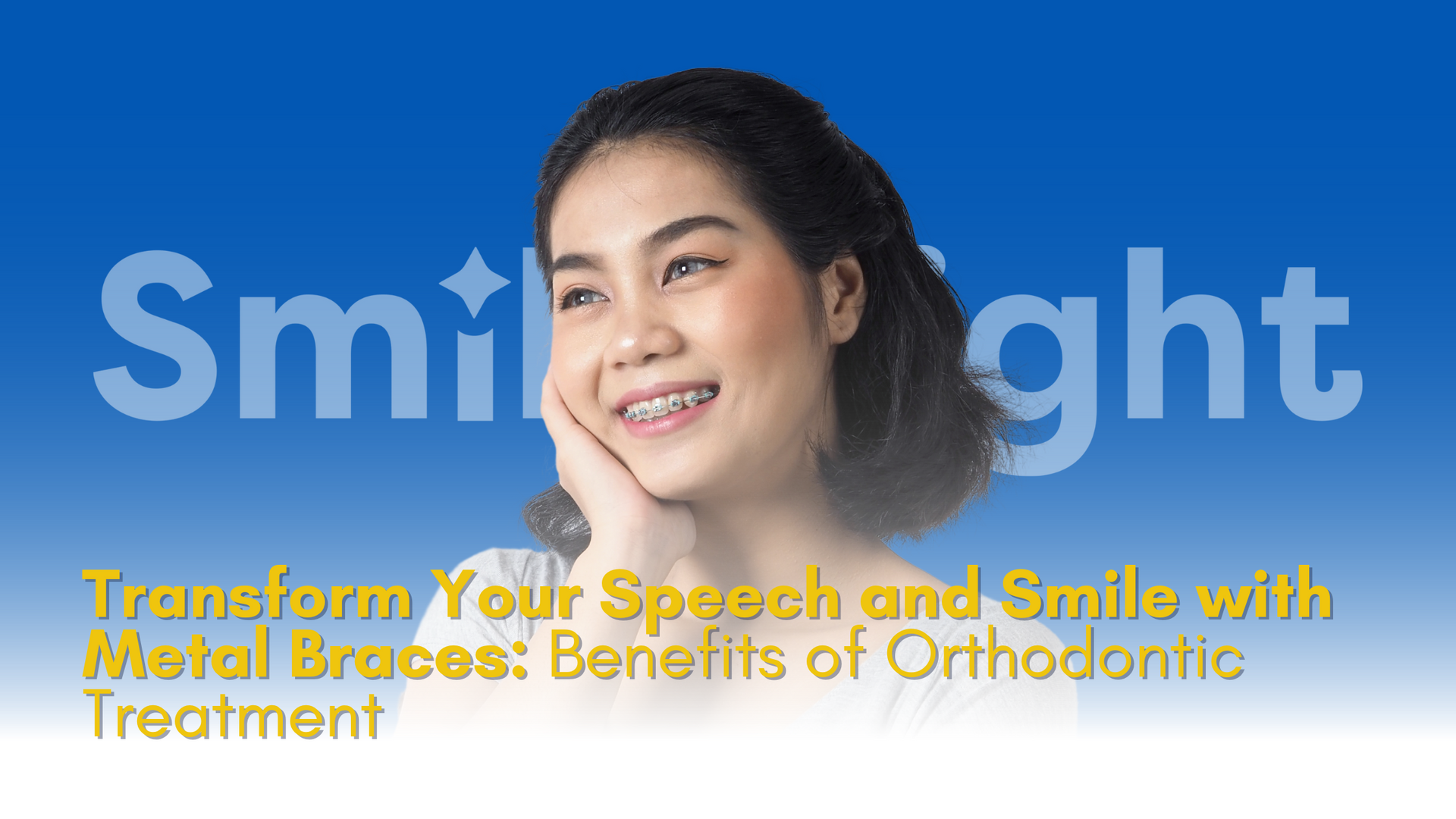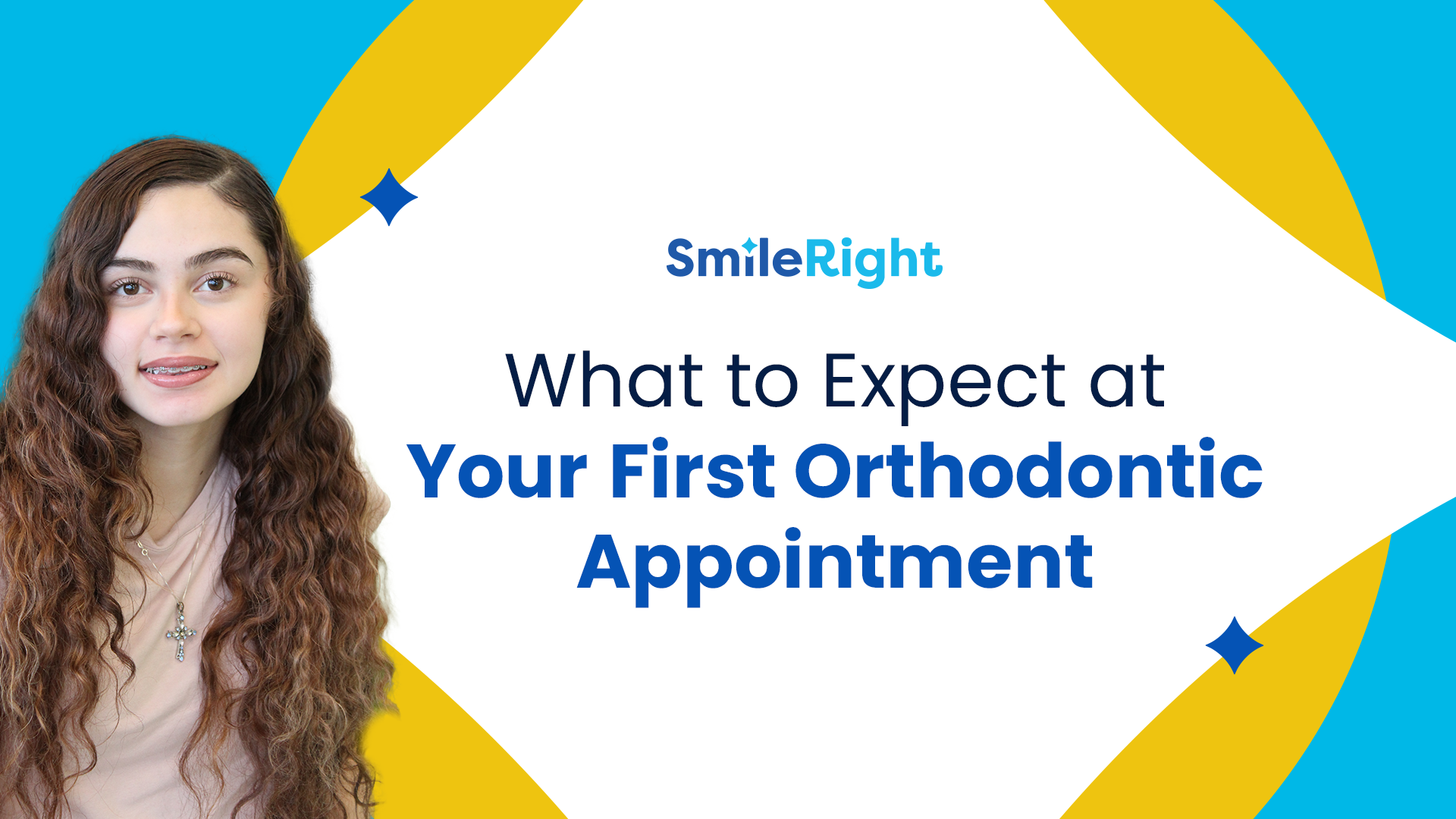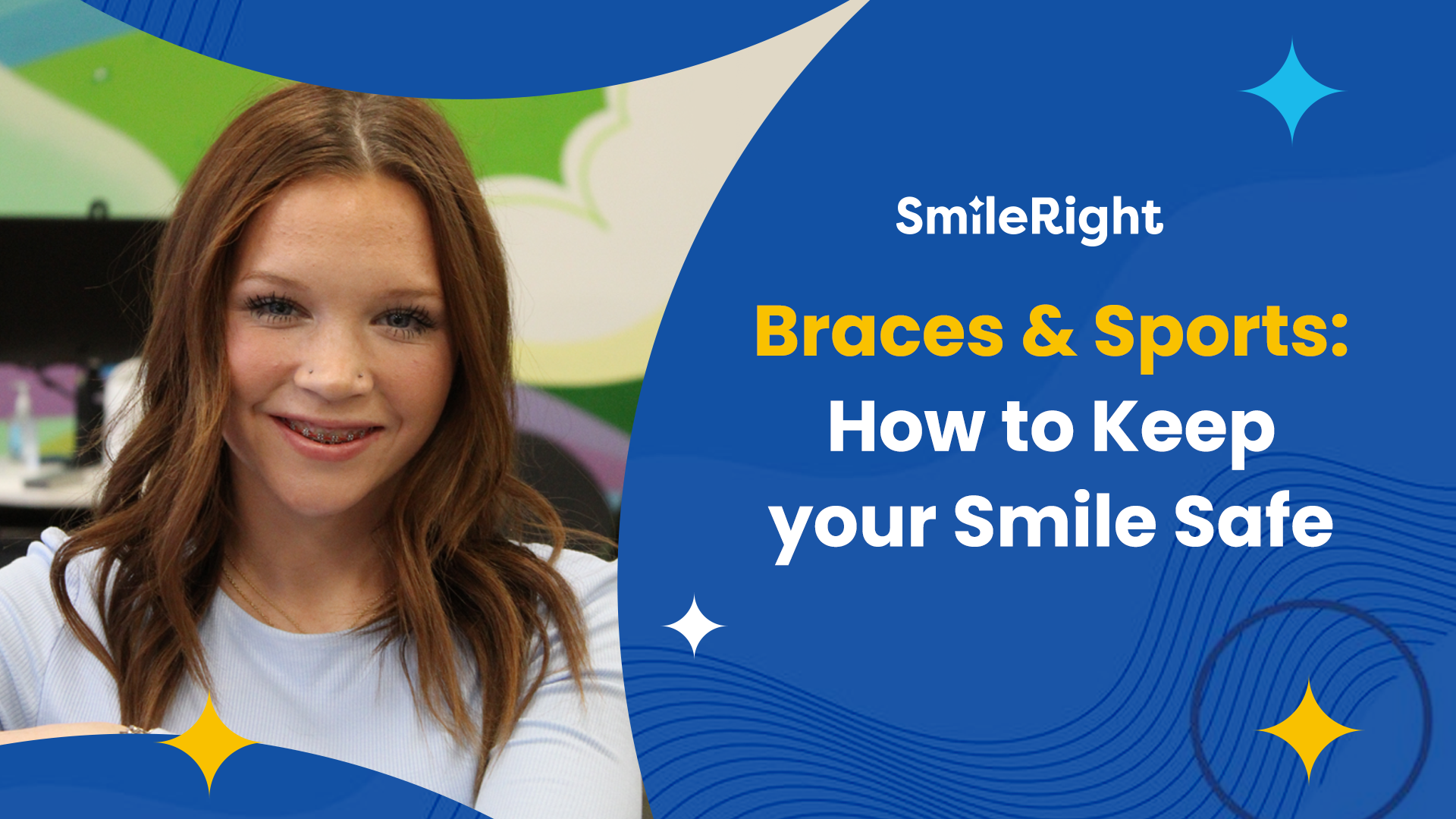Transform Your Speech and Smile with Metal Braces: Benefits of Orthodontic Treatment

Source: Dr. Marketing
Speech difficulties can significantly impact an individual's daily life, causing frustration and embarrassment in social situations. These challenges often stem from a range of dental issues, including misaligned teeth, overbites, underbites, and gaps between teeth. These issues can directly affect speech clarity and articulation. Thankfully, orthodontic treatment, especially through the use of metal braces, can address these concerns effectively. By correcting dental alignment and improving the positioning of teeth, metal braces offer a practical solution to enhancing speech abilities. Now, we will delve deeper into the ways in which metal braces can positively impact speech and delve into the holistic benefits that orthodontic treatment can provide for individuals seeking to improve their oral health and overall quality of life.
Understanding the Connection Between Dental Issues and Speech Difficulties

Speech is a complex process that involves the coordination of various parts of the mouth, including the teeth, tongue, and lips. Dental issues such as crooked teeth, misaligned bites, and gaps can interfere with this coordination, leading to speech impediments such as lisps, difficulty pronouncing certain sounds, and overall unclear speech.
Lisps and Dental Alignment
A lisp occurs when air escapes over the tongue, causing a "slushy" sound when pronouncing "s" or "z" sounds. This can be exacerbated by gaps or misalignment in the front teeth, which disrupt the normal airflow.
Difficulty with Certain Sounds
Misaligned teeth can make it challenging to properly position the tongue against the teeth, resulting in difficulty pronouncing sounds such as "t," "d," "s," and "th."
Unclear Speech
Overall dental misalignment can cause a lack of clarity in speech, making it harder for others to understand the speaker. This can affect confidence and social interactions.
How Metal Braces Can Improve Speech

Metal braces are a tried-and-true method for correcting a variety of dental issues. By gradually realigning the teeth and correcting bite issues, metal braces can significantly improve speech clarity and pronunciation. Here’s how:
Aligning Teeth for Better Tongue Placement
Metal braces work by applying continuous pressure to the teeth, gradually moving them into the desired position. This realignment allows the tongue to rest properly against the teeth, aiding in the correct pronunciation of sounds.
Closing Gaps
Metal braces can effectively close gaps between teeth, eliminating spaces that can cause lisps and other speech impediments. As the teeth move closer together, airflow is normalized, and speech becomes clearer.
Correcting Bite Issues
Overbites, underbites, and crossbites can significantly affect speech by altering the way the upper and lower teeth come together. Metal braces can correct these bite issues, ensuring that the teeth meet properly, which in turn facilitates better speech production.
Enhancing Overall Oral Function
By addressing multiple dental issues simultaneously, metal braces improve overall oral function. This not only benefits speech but also enhances chewing, biting, and general oral health.
The Process of Orthodontic Treatment with Metal Braces

Initial Consultation
The first step in orthodontic treatment is a consultation with our orthodontists at SmileRight. During this visit, our orthodontist will assess your dental issues, take X-rays and impressions, and discuss your treatment goals.
Treatment Plan
Based on the assessment, a personalized treatment plan is created. This plan outlines the steps and duration of the treatment, including how metal braces will be used to achieve the desired results.
Placement of Braces
Metal braces consist of brackets, wires, and bands that work together to move the teeth. Our orthodontist will carefully place the brackets on your teeth and thread the wires through them. Periodic adjustments will be made to ensure continuous progress.
Adjustments and Progress Monitoring
Regular visits to the orthodontist are essential for monitoring progress and making necessary adjustments. These visits ensure that the teeth are moving as planned and address any issues that may arise during treatment.
Completion and Retention
Once the teeth have moved into their desired positions, the braces are removed. A retainer is often provided to maintain the new alignment and prevent the teeth from shifting back.
Additional Benefits of Metal Braces

Beyond improving speech, metal braces offer several other significant advantages. They can greatly boost self-esteem and confidence by creating a straight, beautiful smile, which enhances social interactions and overall quality of life. Properly aligned teeth are also easier to clean, reducing the risk of cavities, gum disease, and other dental issues, thus promoting long-term oral health. Moreover, metal braces help in improving chewing and digestion by ensuring that food is chewed properly, aiding in better digestion and overall health. These comprehensive benefits make metal braces an excellent choice for addressing both cosmetic and functional dental concerns.

Speech difficulties caused by dental issues can be effectively addressed with orthodontic treatment, particularly with metal braces. By realigning teeth, closing gaps, and correcting bite issues, metal braces can significantly enhance speech clarity and pronunciation. At SmileRight, our expert team is dedicated to providing high-quality orthodontic care that improves both oral health and overall well-being. If you're experiencing speech difficulties related to dental issues, consider scheduling a consultation with us today. Let us help you achieve a confident, clear, and beautiful smile.
Are you struggling with speech difficulties due to dental issues? Metal braces might be the solution you need. Contact SmileRight in Houston, Texas today to schedule your consultation and take the first step towards improving your speech and enhancing your smile. Don't let dental issues hold you back—embrace the benefits of orthodontic treatment and discover a new level of confidence and clarity in your speech.




